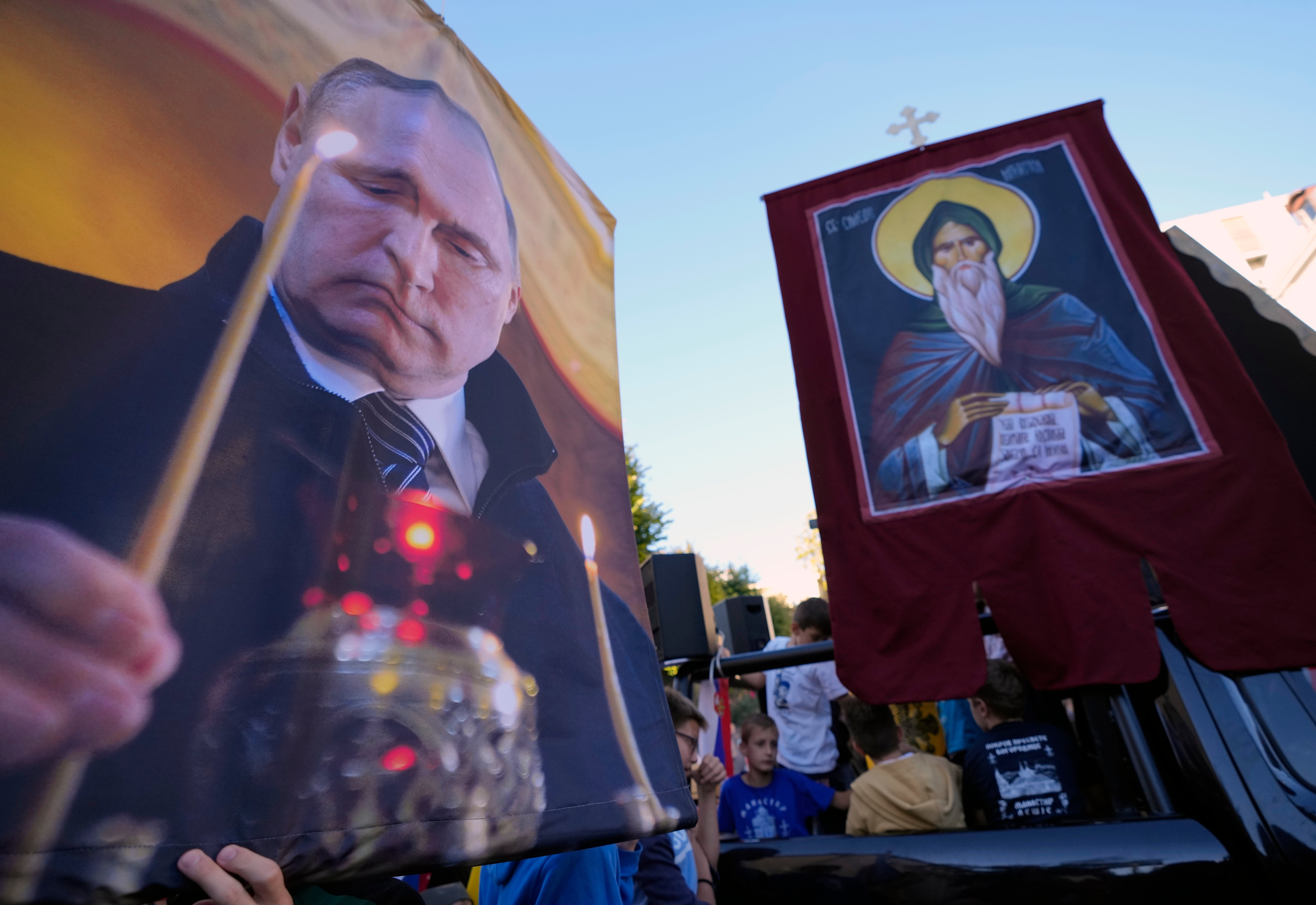Thousands protest planned Pride gathering in Serbia
Thousands of opponents of a pan-European LGBTQ event planned for this week in Belgrade marched through the Serbian capital on Sunday despite an announced ban of Europe’s largest annual gay gathering

Your support helps us to tell the story
From reproductive rights to climate change to Big Tech, The Independent is on the ground when the story is developing. Whether it's investigating the financials of Elon Musk's pro-Trump PAC or producing our latest documentary, 'The A Word', which shines a light on the American women fighting for reproductive rights, we know how important it is to parse out the facts from the messaging.
At such a critical moment in US history, we need reporters on the ground. Your donation allows us to keep sending journalists to speak to both sides of the story.
The Independent is trusted by Americans across the entire political spectrum. And unlike many other quality news outlets, we choose not to lock Americans out of our reporting and analysis with paywalls. We believe quality journalism should be available to everyone, paid for by those who can afford it.
Your support makes all the difference.Thousands of opponents of a pan-European LGBTQ event planned for this week in Belgrade marched through the Serbian capital on Sunday despite an announced ban of Europe’s largest annual gay gathering.
The procession called by the conservative Serbian Orthodox Church and led by its clergy included anti-Western slogans as well as Russian flags and portraits of Russian President Vladimir Putin.
After the march, Serbian Patriarch Porfirije held prayers at the main Saint Sava temple in Belgrade, saying “evil forces” want to "desecrate the purity of the family by imposing anti-God and unnatural unions as a substitute for marriage and family.”
Organizers of the EuroPride — which includes a week of events and a Pride march in Belgrade on Sept. 17 — have said they will ignore the police ban and hold the LGBTQ festivities.
Members of the European Pride Organizers Association chose Serbia’s capital three years ago to host the annual event, hoping it would represent a major breakthrough for a Slavic country that is traditionally conservative and under strong influence from the Orthodox Church.
Serbia is formally seeking European Union membership, but has for years been moving closer to Russia’s political orbit. The Balkan country has voted for U.N. resolutions condemning Russia’s invasion of Ukraine, but has refused to join Western sanctions against Moscow.
Serbia’s populist President Aleksandar Vucic, who has announced the ban, said Serbia’s police cannot cope with possible riots by right-wing groups against the Pride march amid a crisis over Serbia’s breakaway province of Kosovo as well as the energy crisis caused by the war in Ukraine.
Serbia’s rights groups have urged supporters to join the Pride march as part of struggle for democracy that they say is under threat in Serbia from Vucic’s autocratic regime.
Several EU officials have said they will join the LGBTQ events, while those calling on the Serbian government to reverse the announced ban include U.S. State Secretary Antony Blinken.